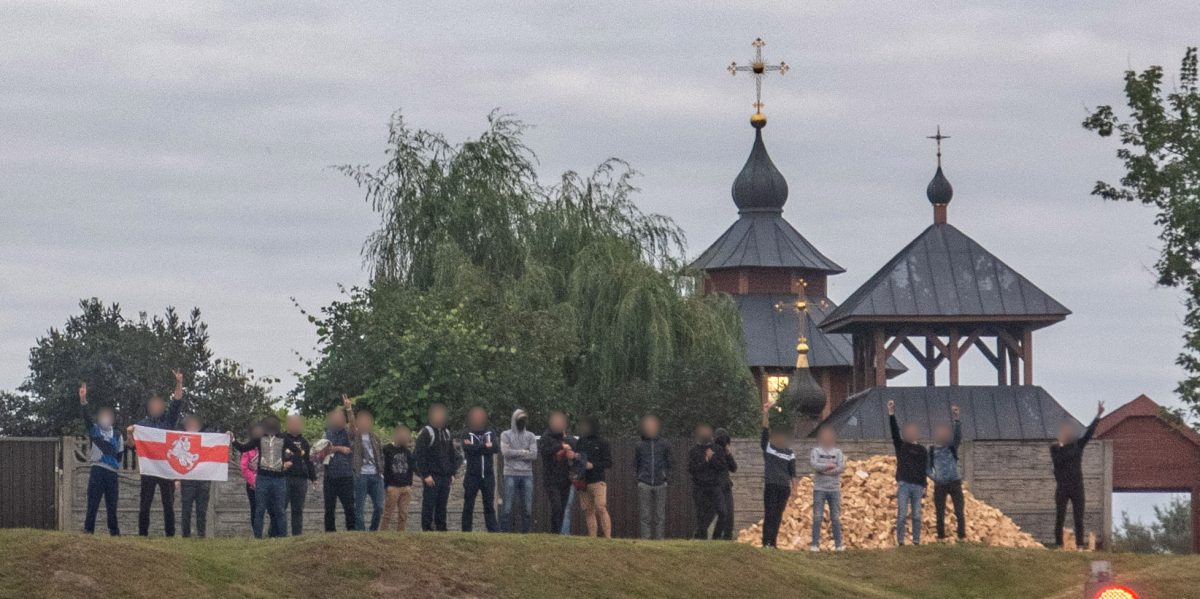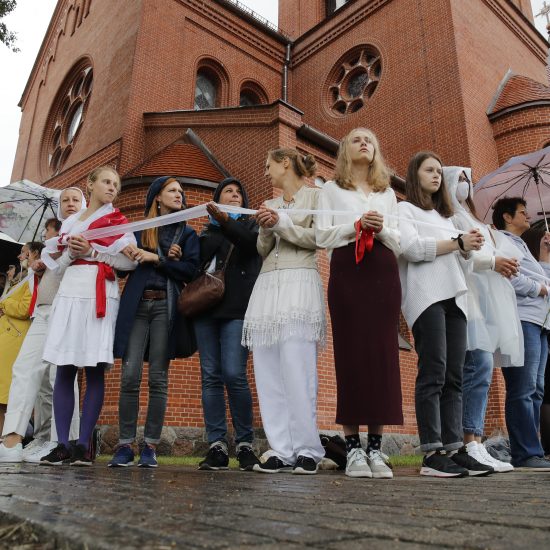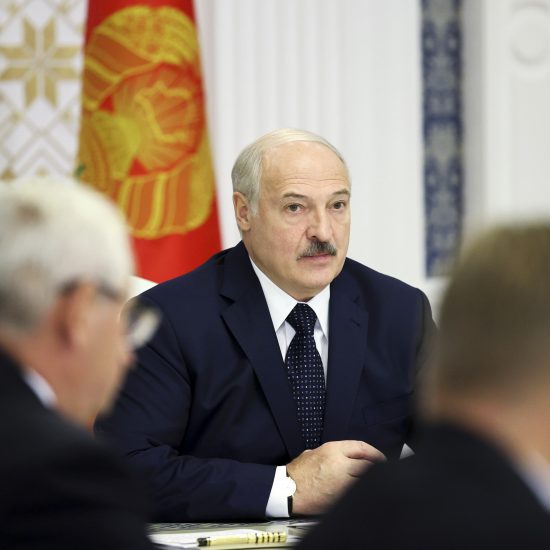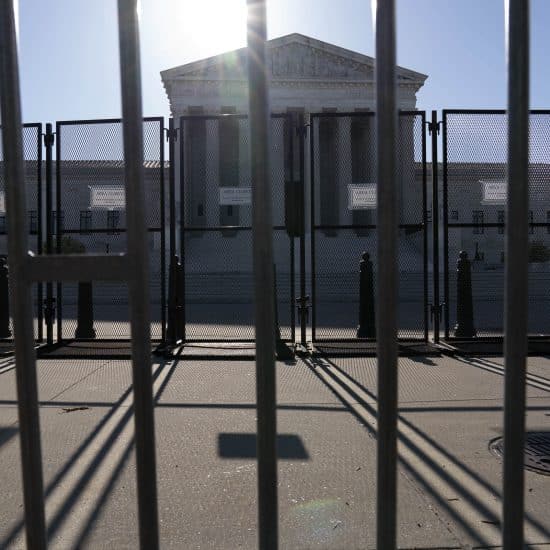
Baptists in the eastern European nation of Belarus request prayers as the nation’s streets fill with protesters upset at presidential election results largely deemed fraudulent. The protests mark the most significant public uprising to President Alexander Lukashenko’s quarter-century rule over the former Soviet-bloc nation.

Alexander Lukashenko. (Okras/Creative Commons)
Lukashenko, often called “Europe’s last dictator,” has led Belarus since 1994. After rising to power just four years after the country’s independence from the Soviet Union, he’s claimed victory in five reelection campaigns — though outside observers has criticized each of those elections as unfree and unfair.
The 2020 election included his government denying the registration of several would-be challengers and even arresting opponents. His main challenger in the Aug. 9 vote, Sviatlana Tsikhanouskaya, ran after her husband was arrested and imprisoned two days after announcing his candidacy and then saw his registration refused by the nation’s election commission.
As polls closed, the state quickly announced an overwhelming “victory” for Lukashenko, giving him 80% of the vote, with Tsikhanouskaya receiving just 10%. Authorities also blocked internet access in the country. Almost immediately, protests erupted in the capital of Minsk as many expressed disbelief and anger at the Lukashenko’s supposed landslide. The protesters quickly spread across the nation and grew in size. In the first week of protests, a couple people have died in clashes with police and more than 7,000 have been arrested — including journalists.
After Tsikhanouskaya was detained on Aug. 10 as she challenged the official results, she fled to Lithuania the next day. The 37-year-old had already sent her two young children out of the country during the campaign, and her husband has been jailed in Belarus since May.
As the protests continue, Baptists in the nation urge prayer. The small Baptist community there has already struggled this year with coronavirus, and they have faced persecution in recent years.
According to the Baptist World Alliance, there are about 280 churches with more than 12,000 members in the Union. This makes them a small group in the nation where most people identify with the Eastern Orthodox Church. All Protestants account for just 0.5% of the population.

Protesters (with faces digitally obscured) near a church in Minsk, Belarus, on Aug. 12, 2020. (Uladzimir/Creative Commons)
But as John Jackson, a field services director for Future Leadership Foundation who has traveled numerous times to Belarus to work with Baptists there, explained in a Word&Way column, the Belarusian Baptists have managed to thrive despite restrictions. He called them “vibrant, resourceful, and creative in expressing their faith while enduring economic and social challenges that have been a part of their daily life at the hand of their president who has been in power since 1994.”
Leonid Mikhovich, general secretary of the Union of Evangelical Christians of Baptists in the Republic of Belarus, issued a statement on Thursday (Aug. 13) with two other Belarusian evangelical leaders to urge believers there to pray “every day at 9 a.m. and 9 p.m.” for “God’s wisdom and strength.”
“Pray for all the people who are in charge (1 Timothy 2:1-2) so that they may have the fear of God and remember that above them there is a Supreme Judge to whom we will all report (Romans 14:12),” the statement requested. “Pray for an end to the cruelty, violence, and bloodshed, as well as for all victims and their families. Pray that the Lord will save us from hatred, revenge, and anger (Romans 12:19).”
“Pray for the people to turn through Jesus Christ to God and love him with all their hearts, all their souls, and all their minds, and love their neighbor as themselves. Only when we love God will we be able to properly love our neighbor (Matthew 22:37-40),” it added.
On Saturday (Aug. 15), Mikhovich wrote a reflection on Habakkuk and being “Christian after elections.” He noted that like Habakkuk, people today are “in confusion, with sorrow and grief” as they “look at the evil and cruelty in this world, and especially in our country.”
Mikhovich wrote that “we as Christians condemn all cruelty, especially by the security forces that are called to protect the people, punish evil, and promote good (Romans 13:1-7).” He noted that despite its belief in laws, the Roman government violently crucified Jesus.
“Injustice reigned in the not-so-distant Soviet times, and the public and the media together supported the persecution against believers,” Mikhovich added.
He also complained that “even today the demands of justice are relative.” Recalling how he’s heard people say they could have tolerated the situation if the election had only been rigged by 10-12% like normal, he said that people “are interested not so much in justice since our understanding of justice allows an acceptable level of lies.”
Acknowledging that “different opinions among Christians are permissible regarding the reaction to what is happening,” Mikhovich added that the key is that “the main thing remains the main thing.” Thus, even though ministers “occupy various places on the map of political activity,” he urged them to “maintain a calm trust in God like Habakkuk” and keep worshiping and trusting God.
“Are we ready to trust God, worship him,” Mikhovich asked, “even if the potatoes didn’t bear fruit, even if they turned off the internet, even if they rigged elections?”
Thus, Mikhovich urged believers to “continue to pray for our beloved Belarus” and act with mercy.
“We pray, and in prayer we trust God more than our political activism,” he wrote. “Sometimes it is difficult for us to understand the ways of God in history.”
“In times of unrest there are many innocent victims, and we can simply follow the example of the Good Samaritan to help those in trouble (Luke 30:37) without even asking why the person is in trouble, whether he is guilty or not,” he added. “There are many opportunities today for Good Samaritans, and I know many believers and ministers who do so.”





